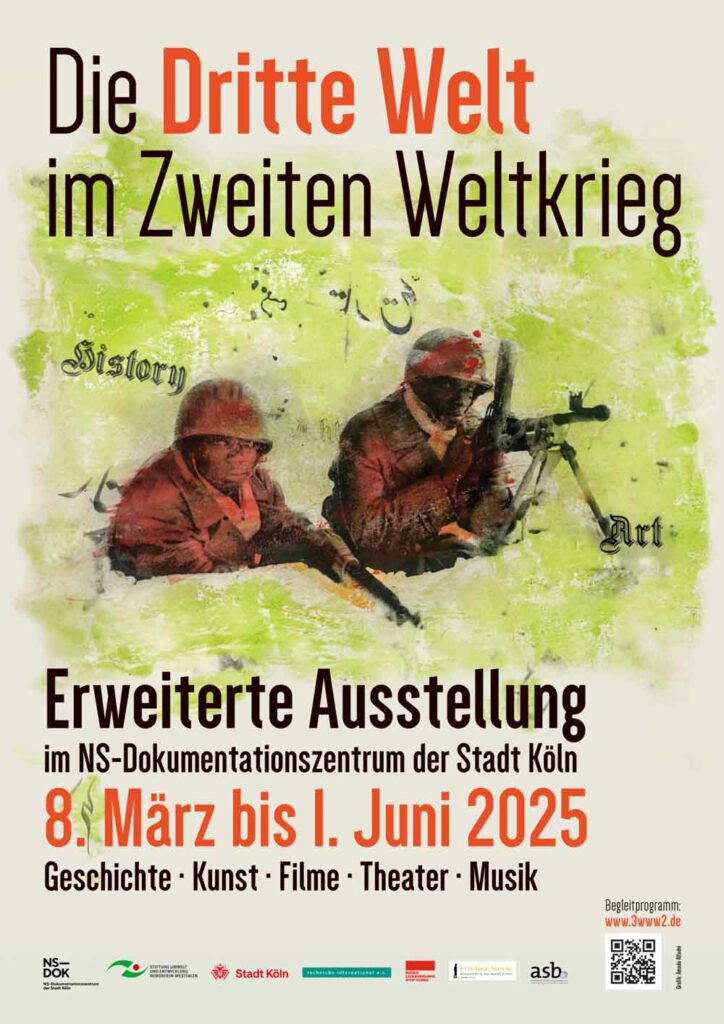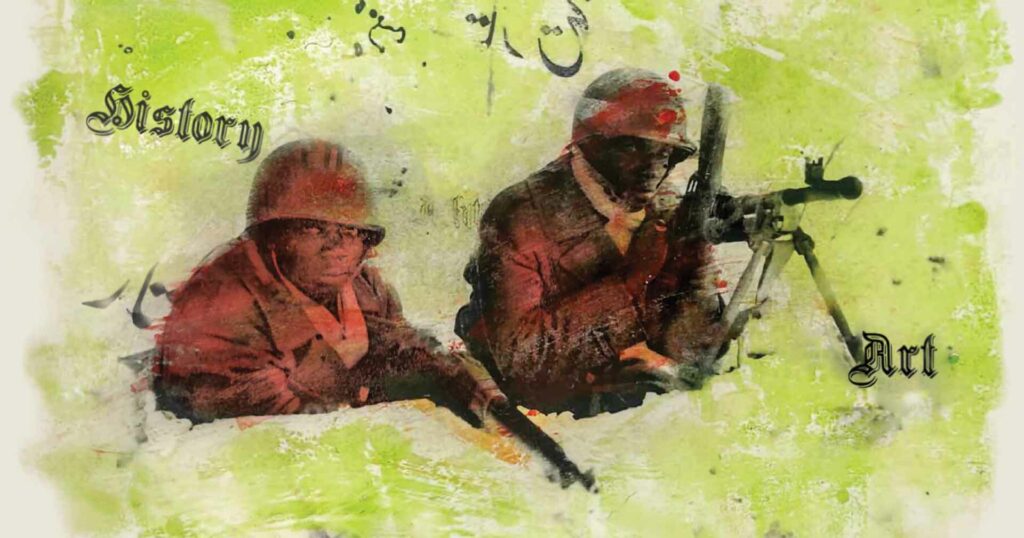THE THIRD WORLD IN THE SECOND WORLD WAR
Millions of soldiers from Africa, Asia and Oceania fought in the Second World War to liberate the world from German and Italian fascism and the Japanese delusions of grandeur. Both the fascist Axis powers and the Allies recruited auxiliary troops and laborers in their colonies, often by force. Hundreds of thousands of women were victims of sexual violence. Recruits from the colonies had to make do with less pay, poorer accommodation and lower war pensions than their “white comrades”. Large parts of the Third World also served as battlefields and were left devastated and mined after the end of the war.
However, as serious as the consequences of the Second World War were in the Third World, they are not mentioned in local historiography. Changing this is the aim of a long-term historical project which the Rheinisches JournalistInnenbüro in Cologne began in 1996 and which has been supported by the non-profit organization Recherche International e.V. since 2000.
Based on ten years of research in 30 countries, the first German-languagebook on the subject was published in 2005 (after four editions by the publisher Association A went out of print, the Federal Agency for Civic Education has been offering an unabridged and affordable paperback edition since the end of 2014).
In 2008, teaching materials with original sounds from contemporary witnesses were also published on an accompanying CD (second corrected and expanded edition in 2012).
The role of Nazi collaborators in the Third World was the focus of the iz3w magazine in May 2009.
On September 1, 2009, the 70th anniversary of the beginning of the war in Europe (!), an extensive traveling exhibition premiered in Berlin, of which smaller versions in A1 and A2 are also available, e.g. for schools.
The various exhibition versions have already been shown at more than 60 locations in Germany and Switzerland up to 2024.
Recherche international has now also produced an English version of the exhibition, which toured several cities in South Africa following its premiere in Cape Town from February to June 2017. It was on display in Pretoria from July 2017, in Johannesburg from early 2018, at the Steve Biko Centre in King Williamstown from mid-2018 to mid-2019. (see here), then at the Desmond and Leah Tutu Foundation in Cape Town and from 2023 it will be on permanent display at the Castle of Good Hope Museum in Cape Town.

The long-term project is to be concluded in spring 2025 with an extensive exhibition and event program in Cologne. (Further information can be found under “News“)
This website has accompanied the exhibition since 2009. It offers news and background information on the project, locations and dates with accompanying programs as well as photos and guest books of the (travelling) exhibition, references to publications, films, speakers and a hip-hop dance theater on the topic as well as tips for organizers and posters to download.
There are didactic materials, drafts for teaching units and worksheets for pupils visiting the exhibition, as well as examples of activities for initiatives and press materials.
This website has been accompanying the exhibition since 2009 and offers news and background information on the project, locations and dates with accompanying programs as well as photos and guest books of the (travelling) exhibition, references to publications, films, speakers and a hip-hop dance theater on the topic as well as tips for organizers and posters to download. There are didactic materials, drafts for teaching units and worksheets for pupils visiting the exhibition, as well as examples of activities for initiatives and press materials.
On the occasion of the Eurocentric commemorations of the 100th anniversary of the beginning of the First World War, recherche international has also been offering background information, event information, literature and film tips on the Third World in the First World War on this website since 2014.
The complex project was and is dependent on sponsors.
Recherche International e.V. therefore asks for donations to account 23 812 043 at Sparkasse KölnBonn, BLZ 370 501 98, IBAN: DE07 3705 0198 0023 8120 43, SWIFT-BIC: COLSDE33. Tax-deductible donation receipts will be issued.


